Yes is the short answer – gerbils can eat red, green, yellow, black or white grapes as often as any other fresh fruit or vegetable – they are totally safe for gerbils in gerbil-sized doses.
Grapes are a common seasonal fruit in our homes and so are more likely to be offered as a treat – especially as they are all individually available – you don’t have to get out a chopping board to cut up a larger fruit to be able to share these out.
Each grape is just perfect for a gerbil-sized portion and they can be fed to our critters without you having to want to eat them too – just pinch one off the stalk at a time..
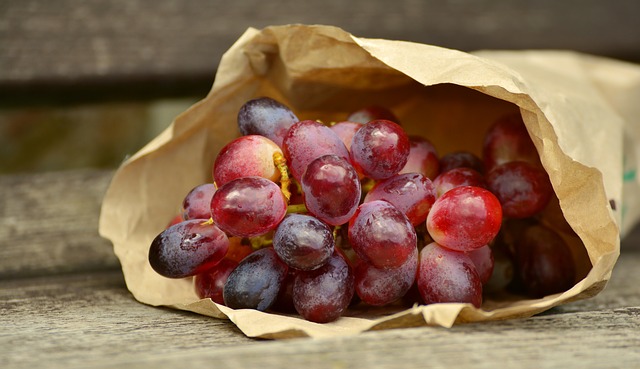
They are even found in some gerbil foods as standard – in the form of currants, raisins or sultanas (all dried grapes). These dried fruits are often the first thing they run off with when you put treats in their tank – so they are obviously deemed very tasty by gerbils.
Grape Nutrition Facts:
Grapes themselves are a fruit – botanically a berry which grow on vines – and they are often found in large clumps of between 20 and 100+ grapes per bunch. The plant itself is very pretty with lovely leaves and it climbs up and about the garden of hedge by supporting itself with runners. Most grapes you find in stores belong to the family Vitaceae and are grown all over the world in both tropical and temperate climates – I have some of my own in the UK.
They are high in quite a few nutrients – the most well known being their healthy antioxidants – but they also contain vitamins C and K, as well as having no fat, no cholesterol and no sodium.
Not bad for a tiny fruit like this.
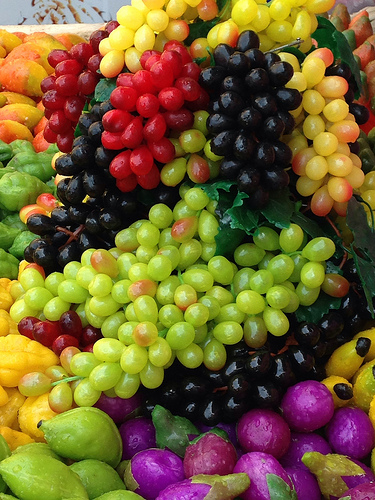

However, grapes come in all sorts of sizes, colours and flavours – so they all have slightly different things to offer – but as a small gerbil treat – and store-bought grape will be fine. Store-bought grapes have been bred especially for the table – to taste nice as grapes – so they are our favourites.
Wild picked or vineyard picked grapes not so much. They can have sometimes a really sweet and sometimes quite a sour taste.
There are also ‘grapes’ of the same family as edible grapes that are edible – so stick with the store-bought or homegrown for your gerbils.
Ways Gerbils Can Eat Grapes:
There are several different ways to eat a grape as with all foods, so below is a quick breakdown of the most common ways.
Fresh Grapes – this is the most obvious way to feed grapes – as it is one of the ways we eat them. Just pull a single grape off your bunch and give whole – or to make it easier on your guys – cut it in half so they can get straight to the flesh. Don’t worry about the pips if they even have any – they are totally safe for gerbils in these tiny doses.
Dried Grapes – basically this includes currants, raisins and sultanas – all just different species of dried grapes – which is why they all look different.
Currants (not to be confused with black or red currants) are usually dried Corinth grapes or similar – a dark red seedless grape. A raisin is usually a dried white grape called a Moscatel and can soak up flavours (why I give small doses of gerbil meds on a sultana).
And finally a sultana, which is a dried white seedless grape (also called a Sultana) that stays pale in colour once dried (unlike a raisin).
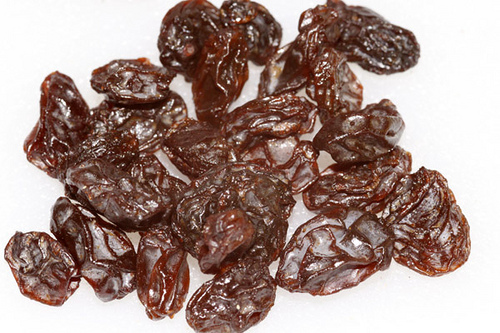

Liquid Grapes – this comes in two forms – either grape juice (a pasteurised non-alcoholic fruit drink which) as well as wine – neither of which are suitable for gerbils as you would expect.
Frozen Grapes – a lot of people swear by frozen grapes for a great treat for rodents in hot weather (and us humans). Just protect them in the freezer when storing them short term and expect a mess in your tank if they don’t eat it all – probably best for the run…
Can Gerbils Eat Other Grape Parts?
It isn’t just the fruity flesh that gerbils can eat – or that are available – so here is a quick rundown of all the other parts of a grape plant and whether they are safe or not.
Grape Skins – these are totally edible and most people don’t give them a second thought – but don’t peel them off for no good reason – they are full of nutrients too.
Grape Pips or Seeds – these are totally edible too for gerbils – if your grapes even have any to begin with. By all means take them out if you want, but you don’t need to.
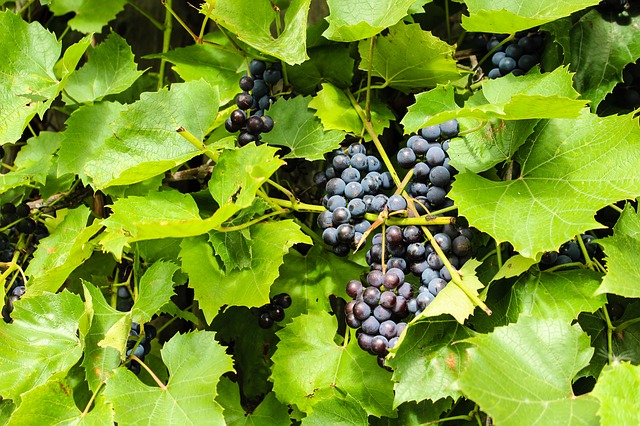
Grape Vine Leaves – these are eaten the world over by humans – and I have no reason to think that a tiny piece of fresh disease and chemical free grape vine leaf would be fine for your gerbils too. I wouldn’t offer them cooked along with their human ingredients if you eat these yourself – but fresh off the vine would be my choice.
Grape Vines – the vines of grapes (and most other human-fruit producing vines) are fine for gerbils as a source of ‘wood’. There are MANY plants that grow into vines that have fruit that humans don’t eat which are potentially toxic to both gerbils and humans – such as ivy and clematis – so be very sure before picking wild ‘grapes’.
Grape Plant Flowers – these do exist (as with all fruits – see below image) – however, they are so ridiculously small and barely noticeable – that you would most likely never see them anyway. I can’t find any evidence on whether they are edible or not either – so best steer clear unless you know otherwise.
Wild Grapes – as above – there are plenty of wild-growing grapes in most parts of the world – and if you identify them correctly – then fill your boots with fruits and vines (well not too much at a time as it can be hard to keep fresh – but you can freeze the fresh leaves though and store for around 6 months).
Same as all wild collected goodies – make sure they haven’t been sprayed with chemicals, and aren’t close enough to traffic or other source of pollution to have absorbed any nasties.
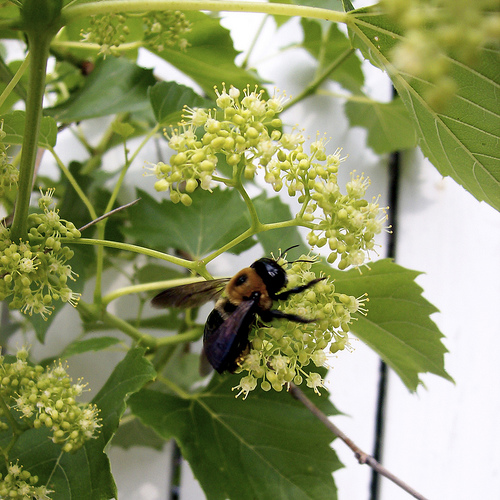

Grapes are poisonous for rodents, you shouldn’t give your gerbils/mice/rats grapes – ever!
Check the rspca website for advice: https://www.rspca.org.uk/adviceandwelfare/pets/rodents/gerbils/diet
Hello Zira and thank you for highlighting this issue of information about feeding grapes found on other websites. Grapes however are not poisonous to gerbils. I have fed them to my gerbils for many, many years and have seen no side effects that I would compare to a poison in the ‘really dangerous’ sense. Your gerbils will not die within hours of eating them, or years even. I personally have had gerbils live to 4 and a half years old who I have fed grapes (raisins etc) to their whole life.
There are, however, many natural foods which if fed too much (or to an already health-compromised gerbil) that can cause health issues long term (like peanuts and dried mealworms) but we ‘safely’ feed our gerbils and other rodents these all the time – it is all about portion control and timing.
Saying that though, there is never any harm in re-researching anything, and so that is what I shall do.
I shall contact the RSPCA and find out what their sources were for their statements in the link you gave me and have a good look around on gerbil forums and websites to see what people are saying and what science has found. I will then update you here and/or perhaps write a new post if the issue is contentious or warrants a more detailed article than this.
Thanks again Zira.
Hello again.
Well, I have contacted the RSPCA and got a reply about the grape facts on their website.
They were talking to vets when they put together their diet information – and although their vets couldn’t locate or quote any research or studies that had actually proved either way about the toxicity of grapes in gerbils – they knew that grapes were toxic to dogs, and so erred on the side of caution when talking about diet in all other animals across their website.
I have also spoken to many gerbil and rodent owners and breeders whilst waiting for their reply – and most of them have fed grapes (or their dried varieties – raisins, sultanas and currants) to their gerbils, rats, mice, hamsters, as a treat every so often throughout their lives with no noticable ill effects. These are very common foods to have around the home and so I can see why people DO offer them.
So, I suppose in answer to your original comment – if in doubt – leave it out.
It is a totally personal choice as to whether you feed grapes to your gerbils as a treat or not. As with all food – you make the final decisions for your little ones, so make the choice that you feel most comfortable with and stick to it.
Thank again for brining up such an interesting topic Zira.
Kind regards,
RodentZone
I have fed fresh and dried grapes to my mice, rats, and gerbils for years with no ill effects. Thanks for your follow-up! And, by the way, you have an awesome website! I wish I could find some of those gorgeous-not-too-available colors!